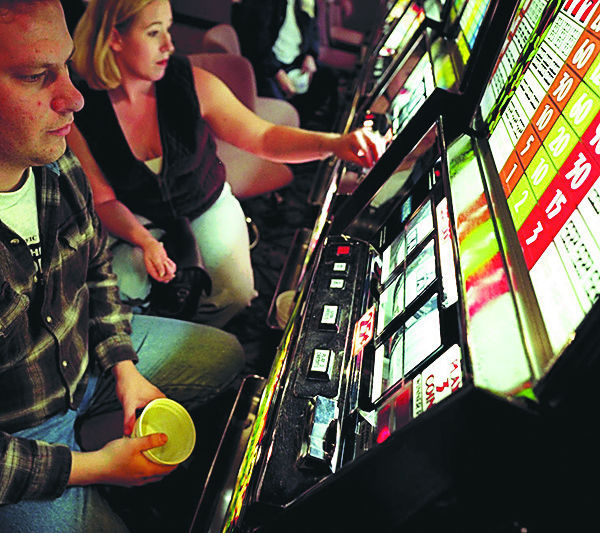PHOENIX — The state’s top gaming official is trying to get a federal judge to rule that lies he contends the Tohono O’odham Nation told more than a decade ago should prevent the tribe from operating full-scale casino gaming in Glendale now.
In a new filing in federal court here, Daniel Bergin details through his attorneys instances where he said voters and others were told that a 2002 ballot measure giving tribes the exclusive right to operate casinos would mean no new gaming operations in the Phoenix area.
Some of what Bergin alleges comes directly from tribal officials, such as meetings they had with editorial boards of Tucson newspapers. And others come from the fact that Tohono O’odham officials were actively involved with leaders of other tribes in preparing documents in support of Proposition 202, which said “there will be no additional facilities authorized in Phoenix, and only one additional facility permitted in Tucson.”
“The state would not have entered into the compact with the (Tohono O’odham) Nation but for the representations by the Nation that the compact did not allow new gaming facilities in the Phoenix metropolitan area,” Bergin’s lawyers told the court. It was only after voters approved the measure and the compact was signed that Bergin said the state learned the tribe had a “secret plan” to purchase land near Glendale, have it made a part of the reservation and build a casino there.
All that, they contend, now allows the state to refuse to license the casino for full Class III gambling.
The claims come in response to a lawsuit filed earlier this year by the tribe asking U.S. District Court Judge David Campbell to order the necessary certification to open the casino on schedule in December and allow it to conduct all kinds of gaming. The tribe contends it has met all the legal requirements and wants Campbell to rule that Bergin’s refusal is illegal.
Bergin argues there is no basis for Campbell to give the tribe what it wants. But Bergin also wants the judge to specifically rule that the compact is invalid because of the way he says tribal officials misled the state and its voters.
But Bergin may have an uphill battle.
State officials made similar claims in a 2011 lawsuit.
And Campbell, in an extensive 2013 ruling, said in essence that it’s irrelevant what voters may have thought about whether they were allowing new casinos in the Phoenix area. He said the only thing that matters is what they actually did approve: the language that became the basis for the compact.
Campbell also said what was approved by voters “contains no such limitation” and that “no reasonable reading of the compact could lead a person to conclude that it prohibited new casinos in the Phoenix area.”
Bergin, however, is trying to void the compacts with different legal theories.
One is that the tribe fraudulently induced the state to enter into the deal by not disclosing its “secret plan” for a new casino. There also is the claim that the tribe knew the state and its voters relied on promises made of no new casinos in the Phoenix area.
In his earlier ruling, Campbell said he could not consider those claims because the tribe had sovereign immunity. But the attorneys for Bergin contend that when the tribe sued Bergin, it waived that immunity.
Each side is marshaling its own evidence to present to Campbell.
The state is relying on a brochure issued before the 2002 election that was partly financed by the tribe. It contained some “common questions” to which people might want answers.
One asks whether the measure would limit the number of tribal casinos in Arizona. The answer: Under Prop. 202, there would be no additional facilities authorized in Phoenix and only one additional facility permitted in Tucson.
Attorneys for the Tohono O’odham conceded the tribe helped pay for the brochure. But they said it was inaccurate because it was drafted by “public-relations consultants” who “did not necessarily seek to depict the compact with legal precision.”
Jane Hull, who was governor at that time, made similar public statements — statements that the tribe never disputed.
Bergin’s lawyers also are relying on notes from the O’odham Tribal Council from meetings before the 2002 vote that not only suggest buying land west of Phoenix but putting it in a “shell company” to “keep it quiet” while negotiations with the state over gaming were taking place.
The tribe is countering with depositions it took from some of the people involved in the negotiations.
For example, Paul Walker, the head of the Department of Gaming at the time, said he could not point to any member of the tribe, its lobbyists or lawyers who ever specifically stated there would be no new casinos in the Phoenix area.
And even Ivan Makil, then the president of the Salt River Pima-Maricopa Indian Community, which opposes the Glendale casino, also said that no one ever told him the Tohono O’odham Nation would not build casinos in the Phoenix area.
The tribe plans to open the casino in December no matter what Campbell rules, but with what the federal government calls Class II gaming devices. These look like regular slot machines but are essentially an interlinked form of bingo, a type of gaming that the state is precluded from regulating on reservation land.





